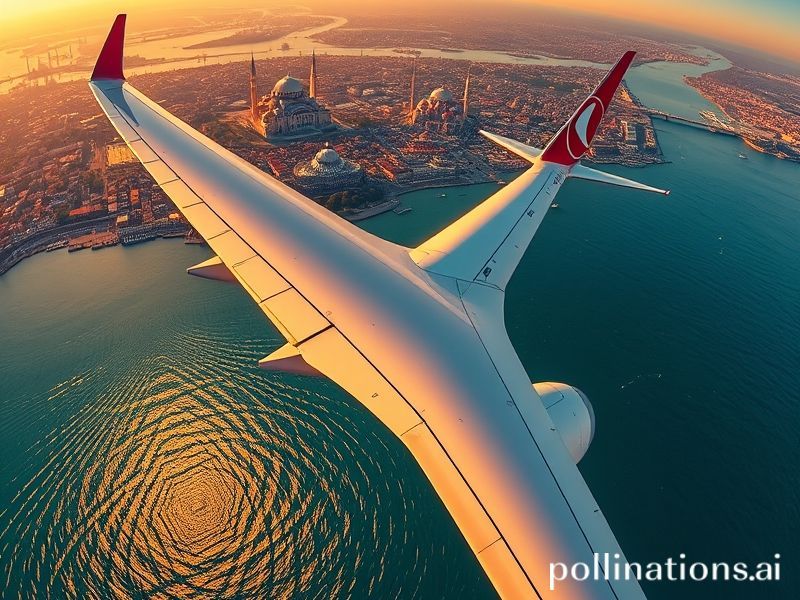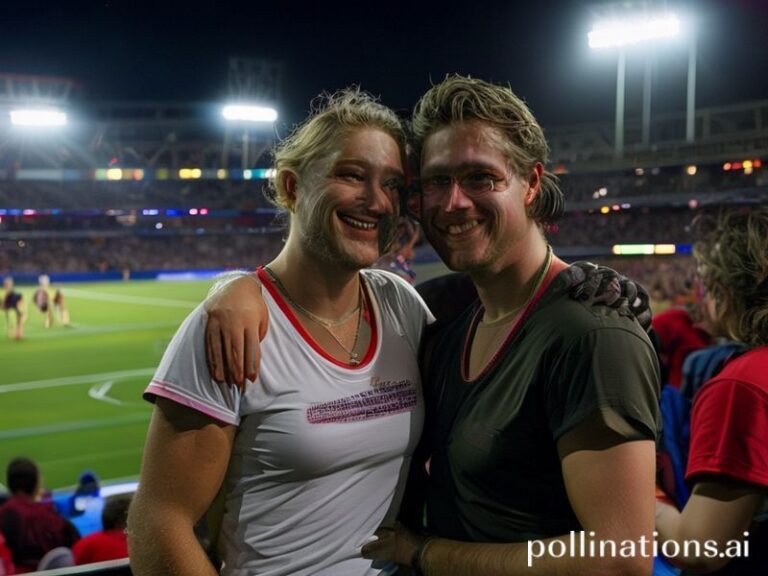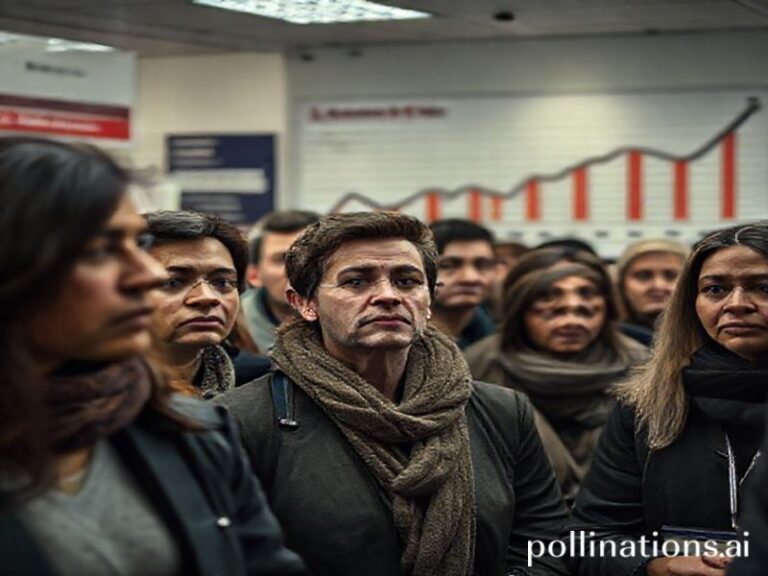turkish airlines
Istanbul—Somewhere between the scent of cardamom and the existential dread of a 23-minute connection, Turkish Airlines has quietly become the geopolitical equivalent of a frequent-flyer program: everyone complains, yet everyone keeps swiping the card. The carrier now flies to more countries than any airline on earth—131 at last count, or roughly every sovereign patch of dirt that still allows civilian jets and hasn’t yet nationalized its airports for crypto-mining. In practice this means a Sudanese businessman can breakfast in Khartoum, lunch in Frankfurt, and still make it to a São Paulo steakhouse before his cholesterol files a complaint, all while accumulating enough miles to upgrade his existential crisis to business class.
The broader significance? Turkish Airlines is the flying embassy of a nation that would rather sell you baklava than ideology, a refreshing pivot in an era when most passports arrive pre-loaded with sanctions. While other flag carriers hemorrhage cash like a hedge fund in a meme-stock tornado, Istanbul’s airport has become the Layover Republic of Earth: a place where language, currency, and time zones dissolve into one giant duty-free hallucination. You haven’t lived until you’ve watched a Minnesota hockey team share boarding gate floor space with Kyrgyz sheep traders, each group politely pretending the other’s snacks aren’t an affront to God.
Globally, the airline functions as a pressure valve. Need to get a Yemeni student to a Canadian scholarship before the next coup? Turkish will route her through Istanbul and even throw in a hotel voucher, no questions asked except “Chicken or pasta?” Want to spirit a Russian coder from sanctions to safety? There’s a 2 a.m. departure with his name misspelled phonetically—close enough for immigration software built on Windows 98. The world’s bureaucracies may be collapsing into nativist drum circles, but Turkish Airlines still prints boarding passes the way Renaissance popes issued indulgences: for a fee, salvation is just a connection away.
Investors feign concern about currency swings—because nothing terrifies finance bros like the lira doing its impression of a base-jumping lemming—yet the planes stay full. Why? Because humanity’s primal urge to flee outweighs its desire for fiscal prudence. We’ll boycott grapes to support farm workers, then burn a hemisphere’s worth of kerosene to photograph the same sunset 5,000 miles away. Turkish Airlines simply monetizes our hypocrisy with complimentary Turkish delight and a smile that says, “We both know you’ll be back.”
Environmentalists, bless their hemp socks, decry the emissions. They’re not wrong; each round-trip from London to Malé hacks a chunk off the polar ice cap roughly the size of Liechtenstein. But moral outrage is luxury goods these days, and most passengers would rather confess their browser history than surrender long-haul travel. So the airline plants a few saplings, buys carbon credits minted on a server farm in Estonia, and presto: conscience scrubbed cleaner than the cutlery in business class.
Meanwhile, the planes keep crossing airspaces that missiles treat as shortcuts. When Ukraine closed its skies, Turkish captains simply vectored north over the Black Sea, whistling past Russian SAM installations like commuters dodging potholes. Conflict zones are annotated on the map the way other airlines warn about turbulence: “Mild risk of surface-to-air fire—keep seatbelt fastened.” You can’t buy that kind of adrenaline in the duty-free catalog.
Back on the ground, President Erdoğan brandishes the carrier as a neo-Ottoman outreach program, a sort of airborne soft power shaped like a tulip. Critics mutter about debt loads big enough to make a Greek accountant blush, but the boarding bridges keep extending like metal tongues licking up fresh batches of the human condition. In the end, Turkish Airlines succeeds because it understands a truth most diplomats won’t admit: national identity is just another loyalty tier, and everyone wants the free upgrade. So we fasten our seatbelts, switch our phones to airplane mode, and pretend the world below isn’t burning—after all, the in-flight Wi-Fi blocks most news sites, and there’s a cheesecake dessert waiting somewhere over Bulgaria.







